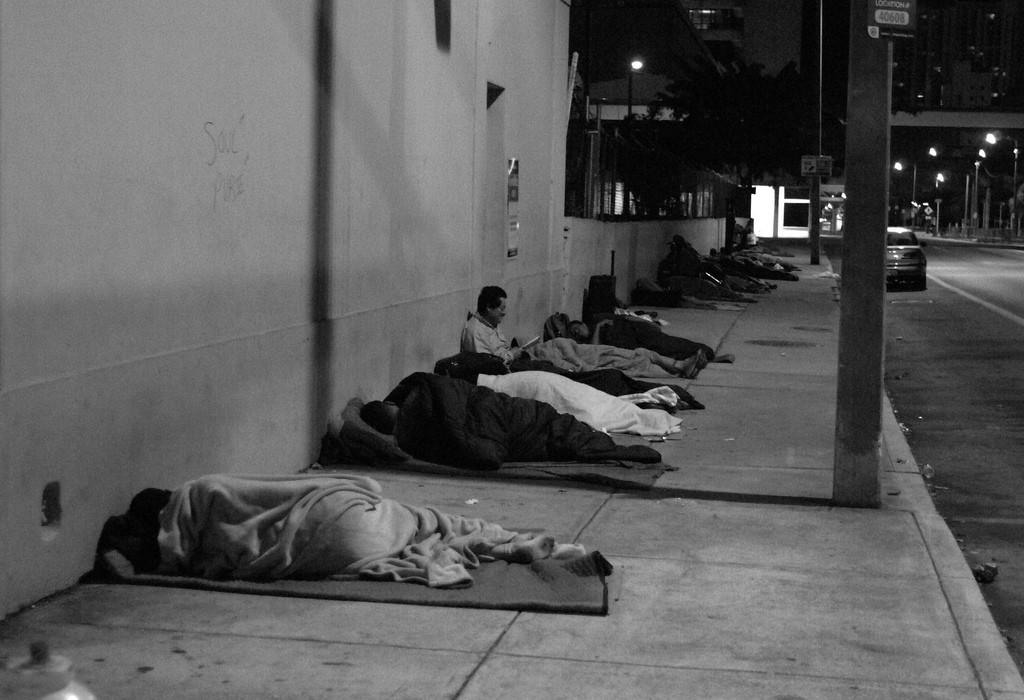

By David M. Greenwald
Executive Editor
Sacramento, CA – The Governor’s proposal for CARE has blazed through the legislature so far. Once again legislative Democrats are willing to support coerced treatment even though the experts believe that such policies do not work.
“From a 39-0 vote on the floor of the state Senate, to the latest passage in two key Assembly committees, our efforts to advance CARE Court is receiving overwhelming, bipartisan support from California’s Legislature,” Governor Newsom said on Wednesday. “Californians understand that we need a paradigm shift to help the thousands of individuals in crisis suffering with untreated psychosis and too often living on the streets.”
He added, “The passage of CARE Court will not only bring relief to those in dire need of care in the community, but it will also bring hope to their friends and family members who feel helpless under today’s status quo.”
But in a forum covered earlier this week hosted by the ACLU and LA Progressive, experts agreed that the CARE concept would take resources out of programs proven to work and put them into an unnecessary bureaucracy.
Susan Mizner, Executive Director and Founder of the ACLU Disability Rights Program explained, “the money that we are spending through this incredibly unnecessary court  system, and then locking people up in these institutions would be much more effectively spent by increasing the services, housing, and supports that we know have been effective.”
system, and then locking people up in these institutions would be much more effectively spent by increasing the services, housing, and supports that we know have been effective.”
She added, “We know what works. We know that Housing First works. We know that patient and persistent outreach works. We know that harm reduction works and we know that we currently don’t have nearly enough money for any of those things in the system.”
Later she noted, “Intuitively, I think we can all understand that coercion when you are trying to work with a trusted medical professional is counterproductive.” She added, “Multiple studies have shown that coerced treatment is no more effective than voluntary treatment. That patient and persistent outreach is what is effective.”
Mike Herald is the director of policy advocacy at the Western Center on Law & Poverty in CalMatters said, “What isn’t proposed is what is needed: help finding and the ability to stay in affordable housing.”
He added, “The problem is clear — people cannot afford the rents in California — and so is the answer. Californians need more housing, and the state needs to help pay for it.”
He argued, “Any proposal that doesn’t include ongoing funding and implementation for rental assistance simply won’t work.”
Herald noted that in 2002, Governor Gray Davis appointed him to California’s Department of Housing and Community Development where they worked to develop a homelessness plan.
They met with people across the state and reached two key conclusions.
First, “Most people were unhoused because they did not have enough income to pay rent.”
Second, “Almost every unhoused person was known to us. They had been in our foster care system, our county hospitals, our jails, our state mental hospitals, our Supplemental Security Income program, our mental health system, or our prisons — often in combination.”
He said, “Those findings hold true in California today, but the situation is worse because of recession, pandemic, stagnant wages and rising costs of living — and the state’s failure to make ongoing investments to address the issues identified in 2002.”
He called for Newsom to allocate ongoing money, not temporary funding for things like rental assistance and the creation of permanent supportive housing.
Housing is the key. As Sharon McDonald noted in a blog post, “Housing First is an approach to homelessness that prioritizes providing permanent housing to people experiencing homelessness quickly, thus ending their homelessness and serving as a platform from which they can pursue personal goals and improve their quality of life.”
While many counter that people experiencing homelessness also suffer from an array of other challenges including mental health and substance use disorder, and thus need to deal with those issues first.
Studies however show the opposite. Housing allows people to achieve stability in housing first, which often serves as “a critical precursor to other improvements in their lives. People with the foundation of a home are better positioned to take advantage of supportive services: they have the stability in which to engage in job search. They have the platform they need to provide care and continuity for their young children.”
The question then is why is the Governor pushing for a coercive model when Housing First is a more effective and less costly model?







The first step is that we need to increase funding for mental health services substantially. These bills don’t include the funding increase that would even be needed to sustainably fund the proposals. Upping this funding now is a no-regrets strategy because its need regardless of the final solution.
However, this article in the San Francisco Chronicle indicates this proposal may already be in trouble:
https://www.sfchronicle.com/bayarea/article/mental-health-bills-california-17262216.php
Civil liberties concerns poised to kill proposals to get people with mental illness off the street
Everyone’s afraid to buck Newsom it appears.
The only money in this bill is for administration/ court costs, not actual treatment.